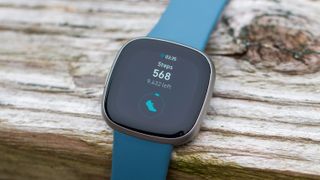Best cheap smartwatch for Android 2024
We prioritized cheap Android smartwatches, from affordable Wear OS to low-priced fitness watches and stylish hybrids.
If you're on a strict budget, there are plenty of cheap Android smartwatches we'd recommend. Which you choose will depend on how you define "cheap," but also whether you need a proper Wear OS watch with Android phone integration or more of a fitness tracker for health data and basic notifications.
Most of the best Android smartwatches cost between $300 and $500, so we've tried to keep this list in the $200-and-under range as much as possible. The Samsung Galaxy Watch FE is a solid budget option for affordable smarts, but we'll also point you to even cheaper options, or ones focused more on fashion or athletics.
Depending on where you're willing to compromise — whether it's on price, apps, fitness features, or design — you'll be happy with at least one of the best cheap Android smartwatches available.

Michael Hicks is Android Central's resident smartwatch geek, having reviewed or tested dozens of wearables from Samsung, Google, Apple, Garmin, Fitbit, Coros, Polar, Withings, Amazfit, and others. He spends his free time running or hiking while wearing several watches at once, testing which is most accurate.
At a glance

Best overall
A rebuilt Galaxy Watch 4 with a revamped display, cool design tweaks, and years of new software support, the Galaxy Watch FE is a cheap variant of our favorite Android watch.
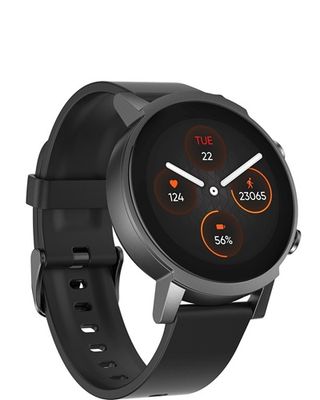
Best runner up
The Mobvoi TicWatch E3 uses an ultra-efficient Snapdragon processor to deliver premium Wear OS 3 performance for less than a Galaxy or Pixel Watch. Keep an eye out for discounts.
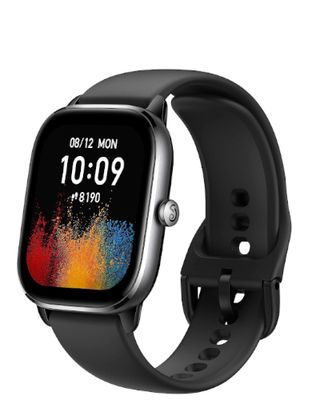
Best value
Amazfit is one of our favorite budget brands. This cheap fitness watch has a mic and speaker, eight-day battery life, dual-band GPS, Alexa commands, and other smarts.
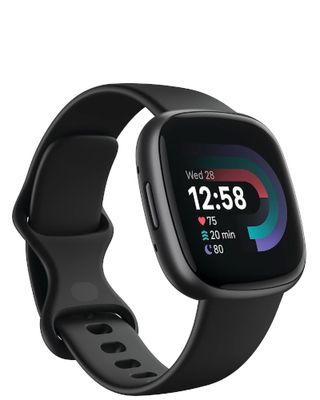
Best cheap fitness
Fitbit gives you a ton of health and fitness data, with the Versa 4 as its cheapest squircle option. Its gorgeous AMOLED display and Google apps make it a fair compromise to the Sense 2.
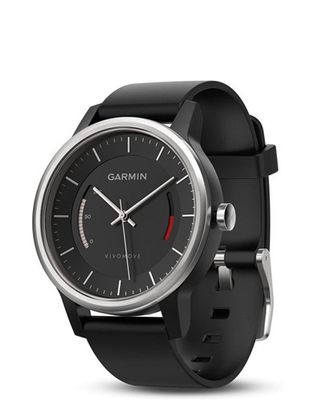
Best hybrid watch
Pairing the look of a traditional timepiece with fitness tools and smarts, the Vivomove Sport hybrid has a 5-day battery and useful Garmin health data behind the scenes.
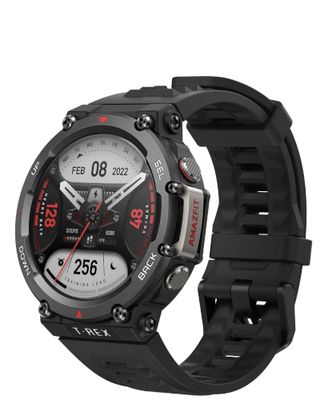
Best rugged
Most cheap watches use cheap materials. The T-Rex 2 prioritizes ruggedness, with a design built to withstand damage and plenty of useful health and fitness tools.
Best overall

1. Samsung Galaxy Watch FE
Our expert review:
Specifications
Reasons to buy
Reasons to avoid
Samsung makes our favorite Android watches, but the Galaxy Watch 7 and Watch 6 are too expensive for this list, and our old favorites like the Galaxy Watch 5 and Watch 4 are mostly out of stock or sold by shady resellers. Plus, they'll lose software support from Samsung fairly soon. However, Samsung just launched the Galaxy Watch FE, a slightly redesigned Galaxy Watch 4 due to receive years of software support.
Like the Galaxy Watch 4, the Galaxy Watch FE offers heart rate with passive AFib data, blood oxygen, ECG readings, and body composition scans for body fat percentage. It has IP68 dust and water resistance, plus military-grade protection against shock. Plus, it has tap-to-pay and support for both Google Assistant and Bixby.
What's different about it? Samsung added fun stitching to the default watch bands for a signature look and a Sapphire Crystal layer to the 1.2-inch display. And this new release resets the clock on software support, so even though it has an older Exynos chip than the latest Galaxy Watch, it should still get Wear OS updates for years. Still, this is essentially a watch with tech from 2021 and 2022, repurposed for 2024. That's what you have to accept for the discount!
Cheap alternative: With the Galaxy Watch 7 officially here, you may find discounted Galaxy Watch 6 models available for not much higher than the Watch FE. Our Samsung Galaxy Watch FE vs. Galaxy Watch 6 guide runs through the differences. Otherwise, Samsung watches are in a class of their own.
Best runner-up
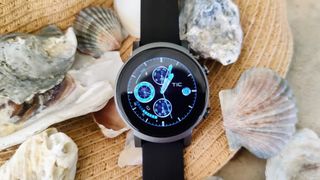
Specifications
Reasons to buy
Reasons to avoid
Most Wear OS watches today are on the pricey side. But the TicWatch E3, which originally launched with Wear OS 2 and received Wear OS 3 recently, is the rare option that's quite affordable, especially since it frequently goes on sale. You'll simply have to accept some downsides for the low price.
First, the positives. Most of our other cheap Android smartwatch picks are fitness watches with proprietary OSs and no app support. The TicWatch E3 gives you all the apps you could want, and it has a stronger battery life than the Galaxy Watch FE—especially in Essential mode.
Our TicWatch E3 reviewer had a laundry list of positives when describing it. He noted "little to no delay in opening apps or loading up the Play Store on the watch," something you can't say for many fitness watches. And on that note, it has heart rate and blood oxygen monitoring for workout and sleep tracking, with the results on par with those he measured on Samsung and Amazfit watches.
In exchange for the low price, you're getting an LCD with a thick bezel that our reviewer called "a bit excessive." You also have to rely on the touchscreen, which may bother you if you're used to a digital crown. The TicWatch E3 has less RAM and storage than the Galaxy Watch FE, as well. But since we've seen it discounted for half the price of Samsung's cheapest watch, these are fair compromises.
Cheap alternatives: We've also seen the TicWatch Pro 3 and TicWatch Pro 3 Ultra discounted into the $150 range. They have the same software and performance, but far stronger battery life, AMOLED displays, and better materials. We just can't guarantee they'll be as cheap as the E3 at any given moment.
Best value
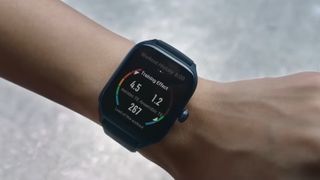
3. Amazfit GTS 4
Our expert review:
Specifications
Reasons to buy
Reasons to avoid
When it comes to cheap Android smartwatches, Amazfit is one of the first brands around. It sells a dozen or more watches at any time, most of which cost $230 or less. Our best Amazfit smartwatch guide runs through several great options, but we're highlighting our top pick here: the Amazfit GTS 4.
Like our previous pick for this spot—the Amazfit GTS 3—the GTS 4 has all of the essentials, from continuous heart, blood oxygen, stress, and breathing data to hundreds of sports modes (with 8 auto-recognized activities like running or cycling). They both have Alexa commands and simple apps like weather and alarms. You also get a gorgeous 1.75-inch AMOLED display with 1,000 nits of brightness and 341 pixels per inch.
With the GTS 4, Amazfit added a speaker so you can make Bluetooth calls and hear Alexa's responses instead of reading them. It also added dual-band GPS for more accurate tracking results. Unfortunately, it still lacks NFC for contactless payments, and the revamped "BioTracker 4.0" cuts the battery life down compared to the GTS 3. But it's still just as long-lived as most other fitness watches, and the battery lasts longer than a Wear OS watch.
We appreciate how Amazfit takes your workout data and judges your fitness level, training load, and other data via its PeakBeats algorithm. You don't get the Zepp Coach AI of some of the newer watches, but it'll still help guide you to get fitter, without the subscription that our next pick charges.
Cheap alternatives: As we said, Amazfit has plenty of cheaper options that cut specific features like the mic and speaker. Look at the Amazfit GTR Mini for a more circular design, or the Amazfit Active for a cheaper squircle. You may also want to look at fitness trackers, which aren't proper "watches" but are often significantly cheaper.
Best cheap fitness watch
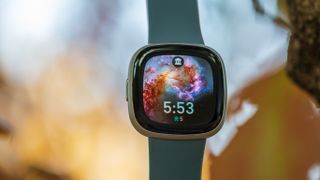
Specifications
Reasons to buy
Reasons to avoid
The Fitbit Versa 4 is a bit of an odd fitness watch. After Google acquired Fitbit, it made the company change some of its design and hardware strategy, and that played out in the Versa 4. Our reviewer wasn't a big fan of its cutbacks, but it still gives you Fitbit's respected health and fitness insights for $100 less than the Sense 2, making it a lock for this list.
Compared to the Fitbit Versa 3, the Versa 4 lost the old Fitbit OS' third-party apps, replaced by Google Maps and Google Wallet—arguably more useful. More frustratingly, it no longer supports Google Assistant, nor music storage or playback controls like the Versa 3 did. That makes it less of a "smart" watch than its predecessor. You still have Alexa commands, but the Wi-Fi antenna is disabled, making responses slower than they should be.
Still, you get a 6-day watch with a gorgeously bright AMOLED display, built-in GPS with an altimeter for judging elevation, Bluetooth calling, continuous heart rate, blood oxygen, heart rate variance (HRV), and breathing rate. It's enough for Fitbit to give you a ton of insights into your Daily Readiness and your overall wellness, so long as you keep subscribing to Fitbit Premium after the free 6-month trial ends.
Cheap alternatives: We've seen the Fitbit Sense 2 dip to $199 during various deal events in the past couple of years; if you spot it at that price, you can upgrade to get an ECG and stress sensors, among other perks. You may also want the cheaper Fitbit Charge 6; you lose the pretty squircle display and altimeter but gain YouTube Music controls, the ECG, an upgraded HR sensor for accuracy, and a lighter fit.
Best hybrid watch
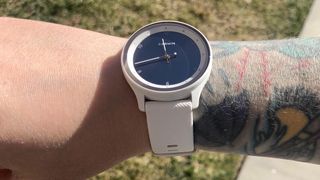
Specifications
Reasons to buy
Reasons to avoid
Most cheap Android smartwatches have cheap, toy-like appearances, whether you choose a squircle or circular display. That's why many gravitate towards hybrid smartwatches that pick style over substance. But since most of our favorite hybrids are expensive, we're picking the reasonable Garmin Vivomove Sport for this spot.
Shipping in Ivory, Cocoa, Cool Mint, or Black, the Vivomove Sport looks like a traditional watch, with actual watch hands and a subtle monocolor OLED touchscreen on the bottom half of the watch. It's designed to passively track your heart rate, stress, blood oxygen, Body Battery, and other data for you to check in the Garmin Connect app.
Compared to the best Garmin watches, the Vivomove Sport is pretty limited. You won't find Garmin Pay, built-in GPS, or robust training tools like Garmin Coach. This is much more of a subtle tool for basic stats like Intensity Minutes, steps, calories burned, and sleep insights. But we think plenty of people will prefer a simplified, stylish experience.
Cheap alternatives: Most Garmin watches cost $400 and up, with a few hitting $1,000! So even though they're too expensive for this list, the $250 Garmin Forerunner 165 and Garmin Venu Sq 2 are relatively cheap for the brand. The Forerunner is a fantastic training tool for runners with workout suggestions and post-run recovery time; the Venu gives you the squircle look and a solid 11-day battery life.
Best rugged watch
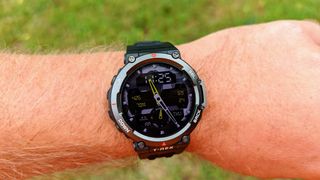
Specifications
Reasons to buy
Reasons to avoid
As we mentioned with the GTS 4, Amazfit makes a variety of cheap Android smartwatches. The Amazfit T-Rex 2 is basically the opposite of the GTS 4, which is much daintier and focused on a traditional smartwatch experience. Our T-Rex 2 reviewer said that this watch "will likely outsurvive you" thanks to its rugged durability, and that's a nice reassurance when most cheap watches aren't built to last long.
The T-Rex 2 weighs a hefty 66.5g, making it noticeable on your wrist compared to most of the thin, shorter-lived entries on this list—but significantly lighter than the stainless steel T-Rex Ultra. It survived over a dozen MIL-STD-810G certifications and has a 10ATM water resistance rating, twice as deep as most smartwatches can handle. Plus, it can last for weeks per charge under normal conditions.
Otherwise, this watch and the GTS 4 aren't that different. You get a ridiculous number of sports modes and eight automatic exercises, plus data on your heart rate, blood oxygen, stress, and breathing. It even has the Zepp Coach AI, though not the GTS 4's mic/speaker combo or its newer HR sensor LEDs that are supposed to be 33% more accurate.
Cheap alternatives: We've already brought up other cheap Amazfit watches to consider, and other rugged watches like the Garmin Instinct 2 are too expensive for this list. We also like the T-Rex Pro, though it has an even older health sensor suite, a smaller display, and other downsides. If you don't need ruggedness and just want a cheap fitness watch, consider the Polar Pacer or Coros Pace 3.
How to choose
Choosing among the best cheap Android smartwatches
Why you can trust Android Central
Hopefully, this list will make it clear that you can find a cheap Android smartwatch that doesn't feel like a complete downgrade. Most of them have a baseline of features that you'll want: health and sleep tracking, notifications, and solid battery life. But in other ways, you'll have to accept compromises.
Your first big decision is whether to choose Wear OS or a secondary option like Fitbit or Garmin OS. We appreciate the Galaxy Watch FE and TicWatch series for giving you access to Play Store apps and the ability to respond to notifications on your wrist. But in exchange, you'll have to charge them every one to two days, while other picks on this list will last a week or more.
Some fitness watches are smarter than others, and most of our picks sacrifice features that you may really want. You'll want the Versa 4 for Bluetooth calling, but not for music playback. Amazfit watches don't have tap-to-pay. Hybrid watches typically don't have built-in GPS. Make sure to do your research before you buy, so you don't end up regretting your choice.
The Galaxy Watch FE looks smart and superior next to our other picks, but do remember that it's a downgrade compared to other full-priced smartwatches. Specifically, it has less RAM, an older CPU, and a thicker border around its display than the Galaxy Watch 7. You may want to hunt for Prime Day smartwatch deals instead of compromising.
Be an expert in 5 minutes
Get the latest news from Android Central, your trusted companion in the world of Android

Michael is Android Central's resident expert on wearables and fitness. Before joining Android Central, he freelanced for years at Techradar, Wareable, Windows Central, and Digital Trends. Channeling his love of running, he established himself as an expert on fitness watches, testing and reviewing models from Garmin, Fitbit, Samsung, Apple, COROS, Polar, Amazfit, Suunto, and more.
- Courtney Lynch
- Namerah Saud FatmiSenior Editor — Accessories
- Patrick FarmereCommerce Editor
- Andrew MyrickSenior Editor - Chromebooks and tablets
